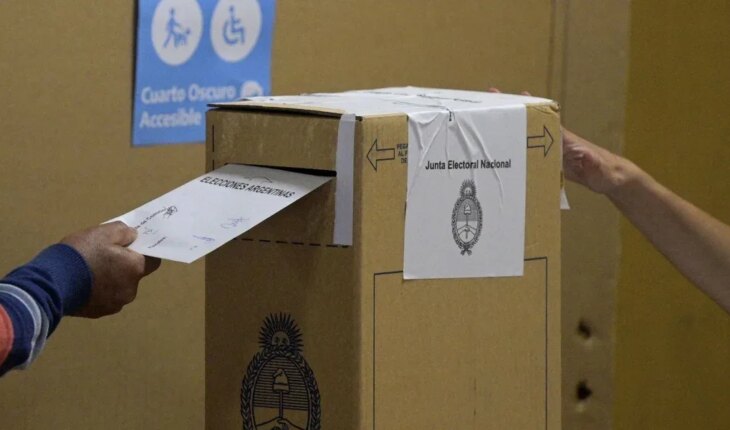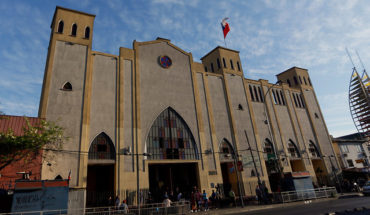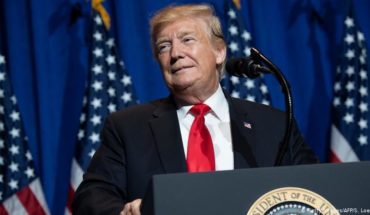2023 is a year marked by the political thread because it is an election year. The ruling party does not see great possibilities at the national level, although there is still some time to reverse it, and the provincial chiefs begin to split the elections. Today the governor of La Rioja Ricardo Quintela made the decision to advance the elections and joins the 15 provinces that had already defined an election date prior to the general elections. The Frente de Todos announced yesterday the formation of a national table of the Peronist party to design an electoral strategy since there is still no accurate candidate for the August elections. President Alberto Fernández has not yet confirmed whether he will be a candidate again, but everything seems to indicate that he will. The only one who announced his candidacy within the ruling coalition was Juan Grabois, who said that he would step down if Eduardo “Wado” de Pedro or Axel Kicillof are presented as candidates of the space. Kicillof said that he would compete again within the province of Buenos Aires, despite the fact that part of Kirchnerism pressures him to be a candidate for President. The unknown within Kirchnerism is its main leader Cristina Fernández de Kirchner, who after being sentenced to effective imprisonment and perpetual disqualification from holding public office, said she would not be a candidate, although she can still be presented since appeals allow it since the sentence is not firm. Like the ruling party, the opposition also has its internal that at times intensifies and this week had its maximum expression in the criticism of Florencia Arietto, who works for the Buenos Aires armed of Horacio Rodríguez Larreta, to the procedures of the former Minister of Security Patricia Bullrich, portfolio of which Arietto was an advisor. in the south that left a balance of two deaths, that of Rafael Nahuel in a police confrontation and that of Santiago Maldonado, who allegedly drowned. Deputy Fernando Iglesias also got into the dispute and insulted the leader. In addition to voting for the next President and Vice President of the Nation, this year the positions of head of Government of the City of Buenos Aires and the governors of 21 provinces will be elected. Santiago del Estero and Corrientes elected provincial leaders in 2021.The suffragists will also define the renewal in the National Congress: 130 national deputies will be elected, half of the lower house, and 24 national senators, a third of the upper house. Also, new positions of provincial legislators, mayors and municipal councilors will be voted. The PASO at the national level will be held on October 13, while the general ones will be October 22. There are 16 provinces, mostly pro-government, which decided to split the election, among them are: Chaco, Formosa Río Negro, San Luis, Salta, Entre Ríos, Jujuy, La Pampa, La Rioja, Mendoza, Misiones, Neuquén, Tierra del Fuego, Tucumán, San Juan and Santa Fe.La last province that announced its split elections was La Rioja, which until early last month had almost completely ruled out the possibility. However, its governor Ricardo Quintela confirmed Thursday night that he made the decision to advance the provincial elections, which will be on Sunday, May 7. “First we want to resolve the provincial election and then dedicate ourselves to contributing to the Nation, with a single policy and a common strategy to face the upcoming electoral process,” said the provincial president, who is one of the greatest relationship with President Alberto Fernández. Misiones and Jujuy. Probably, he will also choose Tierra del Fuego on this date, pending the confirmation of Governor Gustavo Melella. The first of them governed by Oscar Herrera Ahuad, of the Frente de la Concordia, an ally of the national government in many of its legislative initiatives; and the other governed by the radical Gerardo Morales, leader of the radicalism in the opposition coalition of Together for the Cambio.La province that will open the electoral calendar is one of the official ones, La Pampa governed by Sergio Ziliotto that has scheduled the PASO for February 12 and the general ones for May 14. On the same date as the general elections of La Pampa, the provinces of Salta, Tucumán and San Juan, the three pro-government ones, will also hold elections. Gustavo Sáenz from Salta is up for re-election, as is Sergio Uñac, who needs the Supreme Court’s support to run since it would be his third term, a fact that explains the refusal of the request for impeachment to the supreme court. For its part, Tucumán presentIt will be a formula with Osvaldo Jaldo at the head and as vice governor the current Chief of Staff Juan Manzur, reversing the formula of the 2019 election.For its part, Río Negro set its provincial election date for next April 16, according to the decree signed by its governor Arabela Carreras. There, the Rio Negrinos will elect Governor, Vice Governor and 46 provincial legislators. Alberto Weretilneck will be presented as successor of Carreras por el espacio Juntos Somos Río Negro, led by the national senator. On this same date, elections will be held in the neighboring province of Neuquén and the successor of the current governor Omar Gutierrez will be elected. The Neuquén Popular Movement seeks to retain the governorship, for this space Vice Governor Marcos Koopmann will present himself and will face a rival who came out of his own party, Rolando Figueroa, who had a satisfactory legislative election in 2021. On February 10, the candidacies are expected to be formalized. Meanwhile, the governor of San Luis Alberto Rodríguez Saá called elections for Sunday, June 11 for the candidacies of provincial and municipal elective offices, through the Electoral System of Slogans, so it will be the only election date. The governor of Chaco, Jorge Capitanich, announced in mid-December that he will call general elections for governor and vice governor of the province and renewal of 16 provincial deputies for September 17 of this year. On this same date, the province of Mendoza will also hold the Primary, Open, Simultaneous and Mandatory Elections, where its governor Gustavo Sáenz decreed that the general elections be held on September 24 for the provincial elections. For their part, Santa Fe, Formosa and Entre Ríos have not yet defined the date for holding elections. Although it is known that they will unfold the date and call to elect the provincial authorities before the national ones. Meanwhile, only five jurisdictions that keep their electoral schedule tied to the national one for the moment are: CABA, province of Buenos Aires, Santa Cruz, Chubut and Catamarca.
Elections 2023: 16 provinces will split the votes
February 3, 2023 |





